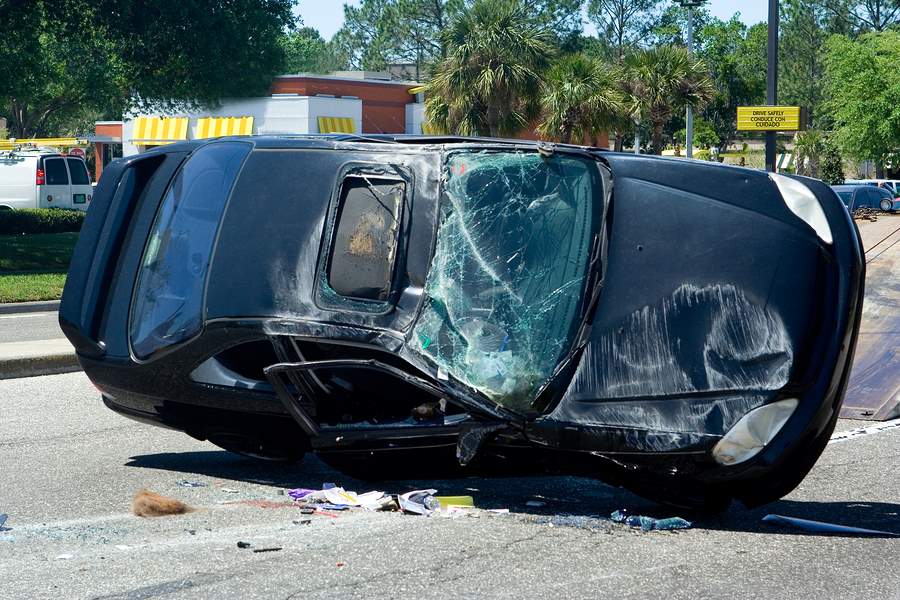Not every motor vehicle accident is clear, cut, and dry when it comes to determining what insurer is primary for purposes of PIP (Personal Injury Protection). For the claimant, it can be a multitude of confusing advice and conflicting statements from one on one dealings with various insurance companies. Unfortunately, unrepresented persons are the most vulnerable to being marginalized by insurance companies during the early part of the claims process. The purpose of this article is to address the issue of the injured passenger and how they may qualify for PIP benefits. Let’s consider a few scenarios.
I have Insurance but I was a Passenger in another Vehicle
Paul is a passenger riding in Tom’s car who is struck by another vehicle. Paul owns his own vehicle. This is the easiest to address because Paul’s PIP coverage follows him wherever he goes, regardless of the vehicle he happens to be in at the time of an accident. A common misconception is that Tom’s insurance, as the host vehicle, would cover Paul since he was in that vehicle; however that is not true. PIP stands for personal injury protection; personal because it is personal to the named insured. So wherever Paul goes in Florida, his PIP coverage would cover him in an accident; even if the driver was at-fault. The only coverage Tom’s insurance could extend to Paul is uninsured or underinsured motorist coverage; a topic for another time.
I do not have Insurance and I was a Passenger in a Crash Vehicle
Paul is a passenger in Tom’s car and is struck by another vehicle. Paul does not own a vehicle and lives alone. The short answer is that Tom’s PIP coverage would now extend to Paul because he does not own a vehicle nor does he reside with a resident relative that owns a Florida vehicle. The insurer for the host vehicle (Tom), will undoubtedly do a thorough investigation before extending PIP coverage to an unnamed party, so the practitioner representing Paul can expect recorded statements, affidavits, and longer than usual PIP setup. It is crucial that unrepresented persons in a situation similar to Paul’s seek immediate legal assistance.
I do not have Insurance but I live with someone that does
The third scenario is more complex but also quite common, and can lead to prolonged coverage disputes. In this instance, Paul resides ONE of the following people: (a) his wife, (b) a same-sex domestic partner, (c) a sibling, (d) a roommate/best friend, (e) parent, (f) live-in fiancée/boyfriend/girlfriend, or (g) son/daughter/niece/nephew. These relationships are important because they determine if the criteria for a “relative residing in the same household” is met, per Fla. Stat. 627.732. If a person resides with a resident relative, then the host vehicle PIP does NOT apply. The statute defines resident relative as “a relative of any degree by blood or by marriage who usually makes her or his home in the same family unit, whether or not temporarily living elsewhere.”
Wife – Paul is covered under his wife’s policy because they are related by marriage. Even if the parties are separated or estranged, Paul could still be covered under his wife’s policy even if not specifically named. However, if the parties maintain separate address, the situation is not so cut and dry.
Same-sex domestic partner – This is an unknown outcome but an increasingly more common situation. As Florida does not recognize same-sex marriage, civil unions, or domestic partnership, the statutory definition is not met. However, individual policies may extend coverage to these familial relationships, so a careful review of the policy is required. The best solution is for same-sex partners to either be on a joint policy or a listed as permissive driver’s on each other’s policy. It is unknown if a municipal designation of domestic partnership confers resident-relative status; unfortunately I believe it does not because the statutory definition specifically refers to marriage.
A sibling – Paul is covered under the sibling’s auto insurance as they are related by blood and reside together; even if only temporary.
Roommate/best friend – Paul is NOT covered because there is no relationship by blood or marriage. College students without vehicles are a prime example. As long as the college student maintains his address with mom and dad, but is simply off at college and temporarily residing away from the family unit, then he can still be covered under mom and dad’s policy. If Paul is a college student, Tom’s PIP does not apply; coverage would have to be sought under the insurer for Paul’s parents. If Paul changed his address and does not claim to reside with his parents anymore, than a coverage battle will ensue between Tom’s insurance and the parents.
A parent – Paul is covered under a parent’s policy; provided the parent owns a vehicle. The college student situation would apply here as well.
Live-in fiancée/boyfriend/girlfriend – Paul is likely NOT covered because these individuals do not meet the definition of resident-relative. Tom’s PIP should apply to Paul.
Son/daughter/niece/nephew – Paul is covered under any of their policies; even a step-child should qualify.
While by no means an exhaustive list of relationships, the point is whether or not the resident-relative definition is met in order to qualify for PIP coverage. The practitioner should develop a checklist once it is determined the client does not own a vehicle. First party coverage disputes can quickly develop into litigation before the underlying injury claim can be prosecuted. Therefore, an experienced attorney should be consulted.
CONTACT FLORIDA PIP SUIT ATTORNEYS DOLMAN LAW GROUP
If you or a loved one was injured in a car accident that was a result of negligence, contact our auto accident attorneys at Dolman Law Group Accident Injury Lawyers, PA today at 727-451-6900 for a free consultation. We will not collect payment until we have earned our client the compensation they deserve.
Dolman Law Group Accident Injury Lawyers, PA
800 North Belcher Road
Clearwater, FL 33765
727-451-6900






